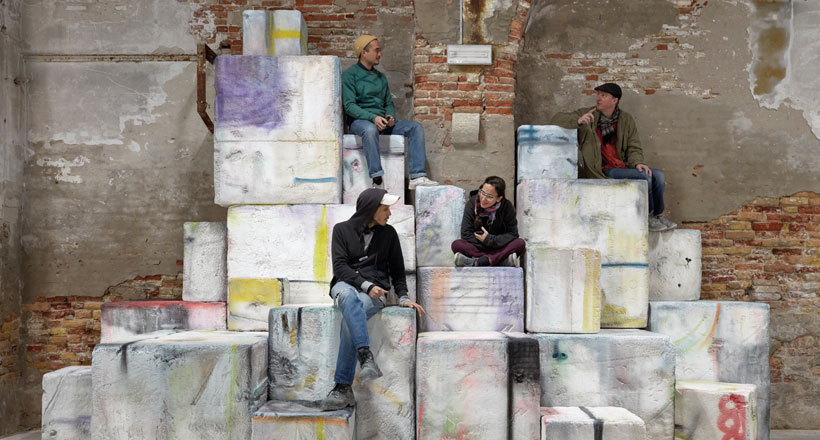

EVA ROTHSCHILD THE SHRINKING UNIVERSE installation view 2019 Irish Pavilion, Venice Biennale Photo ©Robert Glowacki
Brian McAvera: You are representing Ireland at the 58th Venice Biennale. Concerning your exhibit, you state that ‘the work will engage with current political and environmental concerns arising from our ongoing climate of global uncertainty‚’. Can you elaborate?
Eva Rothschild: I am really privileged and delighted to represent Ireland; it’s something I have wanted to do for a very long time. The Biennale is different to other exhibitions as it has such a high profile and so there is a lot of publicity and talk in advance of the exhibition which I am not used to; it makes me feel quite superstitious. Press releases are useful but, by their nature, slightly reductive. The reason I make art is that I don’t have a few sentences which say what I want to say. However, while my work doesn’t have a specifically narrative thrust, our situation over the last few years has become so extreme, in politics and with the environment, that the world just creeps in. My recent show, ‘Iceberg Hits‚’ (Stuart Shave/Modern Art 2018), engaged more with the political context and the Venice work continues that engagement. At the time of the Brexit referendum, I made a show, ‘Alternative to Power‚’ (New Art Gallery Walsall, 2016), in which the works did not directly address the situation, but the framing of the whole group did. We generally communicate through speech and the written word, but I’m interested in finding different ways to communicate through making and materiality.
To read this article in full, subscribe or buy this edition of the Irish Arts Review
Brian McAvera: You are representing Ireland at the 58th Venice Biennale. Concerning your exhibit, you state that ‘the work will engage with current political and environmental concerns arising from our ongoing climate of global uncertainty‚’. Can you elaborate?
Eva Rothschild: I am really privileged and delighted to represent Ireland; it’s something I have wanted to do for a very long time. The Biennale is different to other exhibitions as it has such a high profile and so there is a lot of publicity and talk in advance of the exhibition which I am not used to; it makes me feel quite superstitious. Press releases are useful but, by their nature, slightly reductive. The reason I make art is that I don’t have a few sentences which say what I want to say. However, while my work doesn’t have a specifically narrative thrust, our situation over the last few years has become so extreme, in politics and with the environment, that the world just creeps in. My recent show, ‘Iceberg Hits‚’ (Stuart Shave/Modern Art 2018), engaged more with the political context and the Venice work continues that engagement. At the time of the Brexit referendum, I made a show, ‘Alternative to Power‚’ (New Art Gallery Walsall, 2016), in which the works did not directly address the situation, but the framing of the whole group did. We generally communicate through speech and the written word, but I’m interested in finding different ways to communicate through making and materiality. You are representing Ireland at the 58th Venice Biennale. Concerning your exhibit, you state that ‘the work will engage with current political and environmental concerns arising from our ongoing climate of global uncertainty‚’. Can you elaborate?
Eva Rothschild: I am really privileged and delighted to represent Ireland; it’s something I have wanted to do for a very long time. The Biennale is different to other exhibitions as it has such a high profile and so there is a lot of publicity and talk in advance of the exhibition which I am not used to; it makes me feel quite superstitious. Press releases are useful but, by their nature, slightly reductive. The reason I make art is that I don’t have a few sentences which say what I want to say. However, while my work doesn’t have a specifically narrative thrust, our situation over the last few years has become so extreme, in politics and with the environment, that the world just creeps in. My recent show, ‘Iceberg Hits‚’ (Stuart Shave/Modern Art 2018), engaged more with the political context and the Venice work continues that engagement. At the time of the Brexit referendum, I made a show, ‘Alternative to Power‚’ (New Art Gallery Walsall, 2016), in which the works did not directly address the situation, but the framing of the whole group did. We generally communicate through speech and the written word, but I’m interested in finding different ways to communicate through making and materiality.
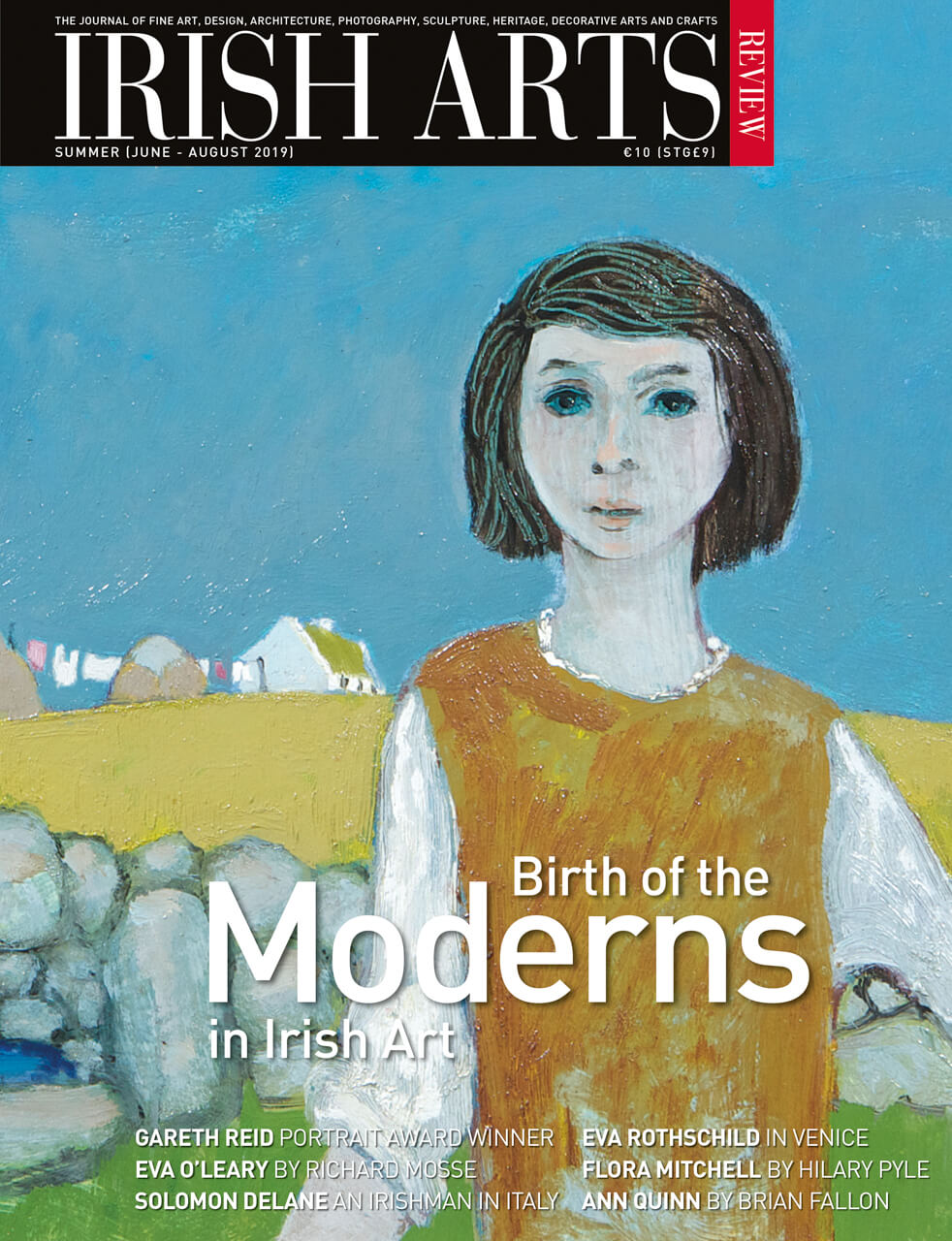
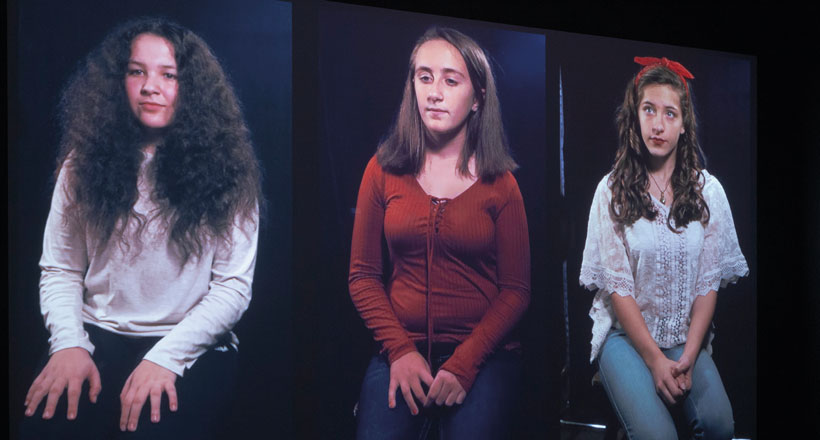
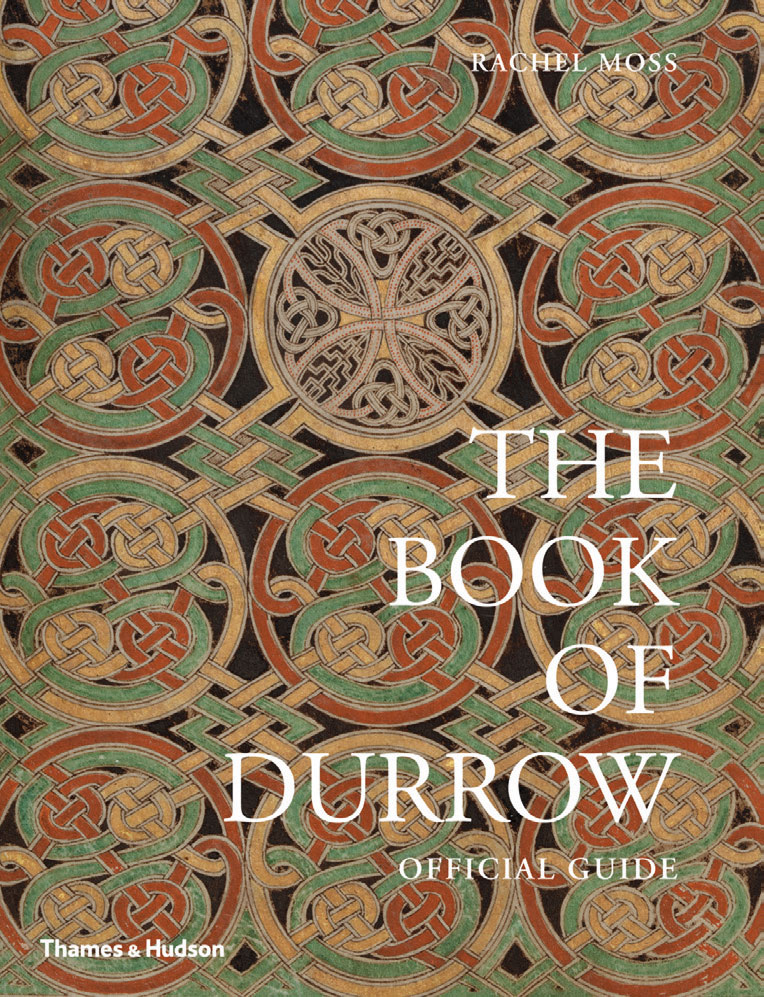
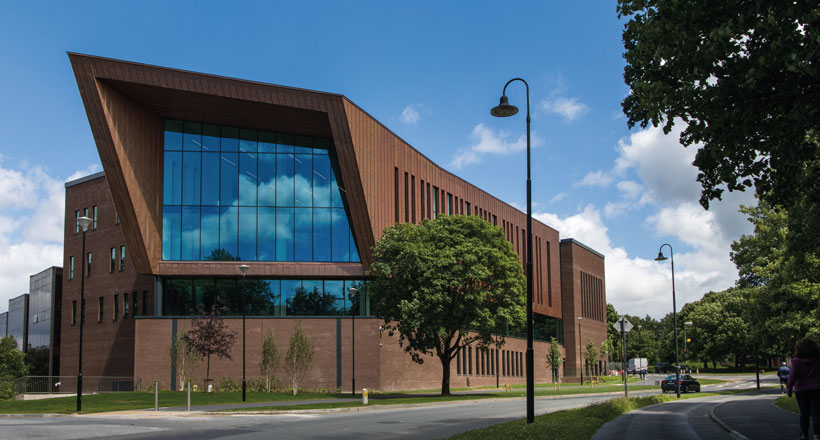
The Glucksman Library at the University of Limerick is now one of the most digitally advanced libraries in the world, writes Judith Hill